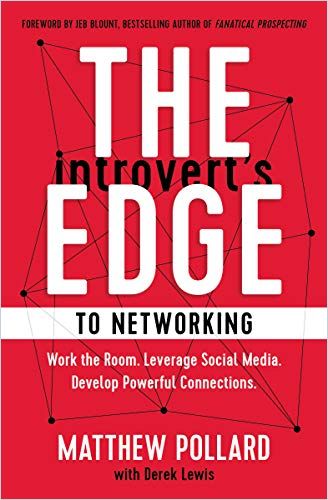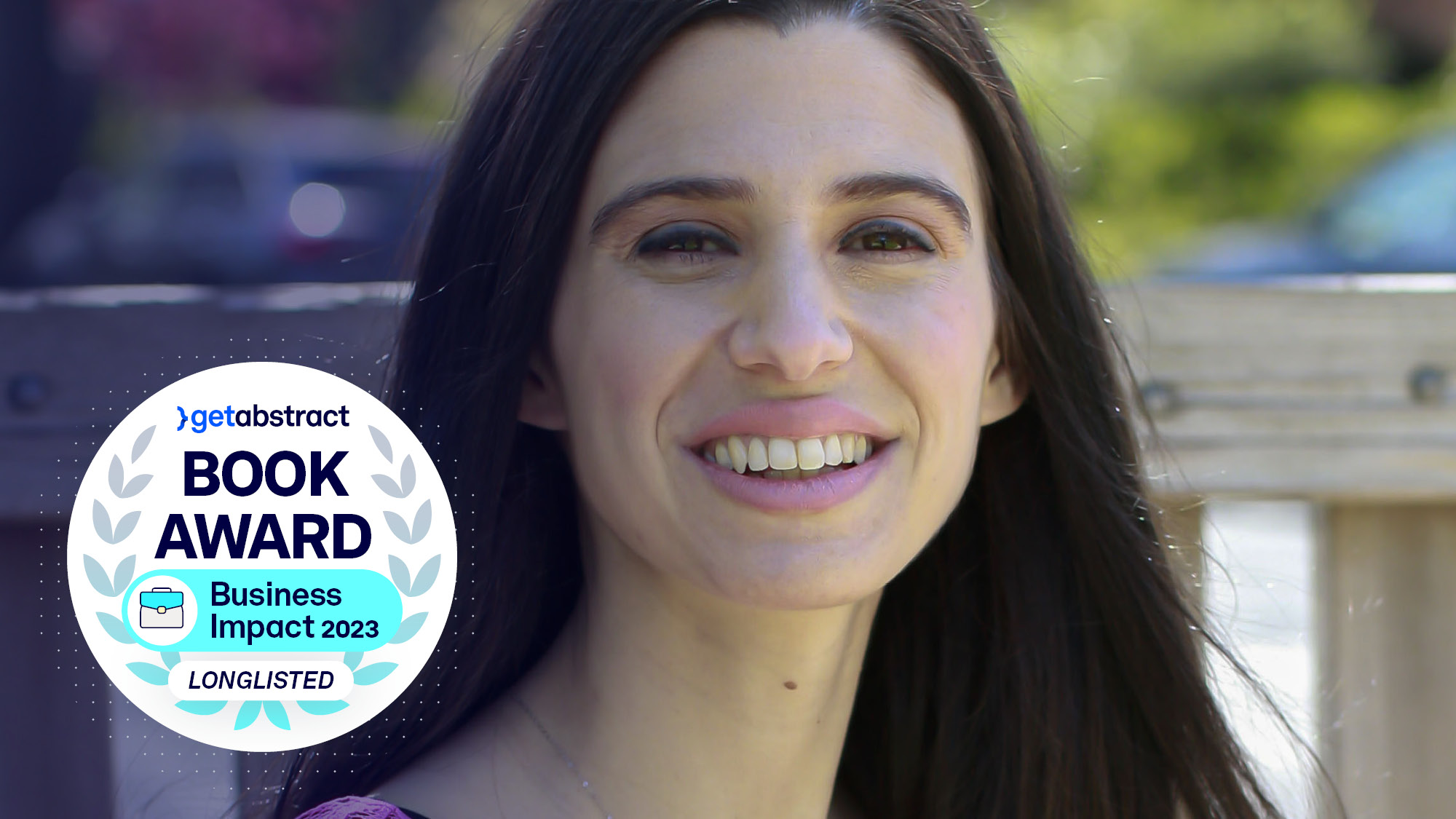“Introverts Can’t Compete With Extroverts by Copying Them.”

Matthew Pollard is an internationally-recognized consultant, speaker, blogger, author, coach and serial entrepreneur with five multi-million dollar business success stories under his belt, all before age 30. A lifelong introvert, Matthew found ways to leverage his introverted qualities to become a highly successful salesman. He is trying to erase the stigma around introversion and empower introverts to recognize and leverage their innate strengths and abilities.

Matthew, you are a self-proclaimed introvert who taught himself the skills to become a highly successful salesman. Could you share a little bit about your background?
As it is structured, the world has never worked to my advantage. A lifelong visual processing disorder, misdiagnosed until my teenage years, left me with a reading speed of a sixth grader in high school. Keeping up at school was a struggle, so I learned early on to think outside the square and find creative ways to achieve a successful outcome. During a gap year after finishing school in Australia, I lost my job just before Christmas when nobody was hiring. The only jobs available were commission-only sales jobs. I had no other option but to give it a go. Eighteen out of 20 people in the training group quit within 24 hours because it was so tough. Of the two of us who were left, the other person just accepted the job for the way it was and would grind it out every day. I, on the other hand, said: ‘Sales has got to be a system – or else my year was going to be terrible!’ I decided to take responsibility for finding a path forward, to not accept the gift-of-gab myth that plagues many of us introverts.
One would assume that being an introvert puts you at a disadvantage in becoming an effective salesman. For you, this has not been the case. How did you turn your introverted qualities into an asset?
Many people are quick to blame outside circumstances or say that they are not talented enough to do a job. Most people aren’t used to finding their own way. I’ve always believed that I can succeed in anything if I keep an open mind about the ‘how.’ Later on, when I ran my own business, networking did not come easy to me. But I found a way to make it work. I created my own methodology that fits with my introvert nature – one that did not feel salesy or uncomfortable at all.
Do introverts have to act like extroverts in order to be accepted or to function in the world?
No, it’s a recipe for disaster. Many people assume that introverts become successful by becoming more extroverted. But that’s not possible. I’m on a mission to help introverts realize they’re not second-class citizens. As introverts, we have our own set of strengths. We have a natural edge. So let’s lean into our natural edge!
I’ve always believed that I can succeed in anything if I keep an open mind about the ‘how.’
Matthew Pollard
There are many introverts among Global Guru’s list of top 30 sales professionals, and I am honored to be on this list. I think that so many introverts being listed is a clear sign that gift-of-gab is not required to be an amazing seller. That said, I feel that some of the introverts on the list took the route of behaving more extroverted – I’m sure this is exhausting for them sometimes. They also come across as less authentic to me. Introverts can’t compete with extroverts by copying them. And secondly, copying extroverts doesn’t deliver as good a result as being authentic. My focus is not to help introverts ‘survive’ in these so-called ‘extroverted arenas,’ but to help them realize that they have a natural edge if they leverage their natural skill sets.
You decided to lean into your introversion…
The sales process that I follow doesn’t have any bulldog techniques or hard closing because, as an introvert, I find those inauthentic and uncomfortable. When I speak on stage, I leverage storytelling because science has shown this technique to be highly effective at creating rapport with the audience. Or, during sales meetings, I circumvent small talk and dive right into asking well-researched questions and then stories designed to educate and inspire action. Storytelling helps develop rapport. Plus, it turns out people are not really looking for small talk – and when you show them that you are well-prepared, you come across with authority and expertise.
As introverts, we have our own set of strengths.
Matthew Pollard
Introverts are great planners. We are empathetic. We want to be mindful of people’s time. It’s easy to show all this and more by saying something as simple as, ‘I’m so glad we can get on a call today. I’ve taken a chance to look at your website, your LinkedIn profile, our email exchange. But because a lot of that is static, I’d like to learn a little bit more about you and what you’re struggling with, and how I can be the most help to you in the time we have together.’ Instantly, you’ll feel the prospect’s energy change, and they will likely thank you. The prospect’s mindset has flipped from worrying about being sold to thinking, ‘Thank goodness I’m talking to somebody who has taken the time to prepare and has tried to understand what my needs are.’ This will instantly put you at ease. And then all you’ve got to do is listen – which introverts are great at anyways – and ask one strategic question that highlights that their symptom has a greater cause. This approach shortens the sales process because you are cutting out the small talk and fake interactions. People will come away thinking, ‘Wow, this person’s efficient with his time.’
How can introverts and extroverts complement each other during sales discussions?
Introverted and extroverted sales team members can leverage each other’s strengths. For instance, many extroverts like to wing things in meetings and many introverts love planning. So, let’s say your solution specialist is introverted and the salesperson extroverted. Understanding each other’s competencies is very powerful. Before meeting the prospective customer, the salesperson might say, ‘I’m not a planner. I know you are. I would love to see your plan before the meeting to understand where we’re going with this.’ Or, the solution specialist may say, ‘You are good at telling stories, but I would love to connect the technology to that story. Let’s talk about which story we’re going to tell.’ This works even more effectively if the story is part of an organization-wide Story Playbook,® a planned and prepared set of stories that all team members know and use, instead of a story leveraged on the fly.
My focus is not to help introverts ‘survive’ in these so-called ‘extroverted arenas,’ but to help them realize that they have a natural edge if they leverage their natural skill sets.
Matthew Pollard
Do introverts hold themselves back unnecessarily?
It hurts me to see introverts say that they want to have their own business but won’t go for it because they believe they can’t sell. Or when introverts won’t even consider a sales role – and thus possibly deprive themselves of a higher salary – because they falsely believe they can’t do it. I’m not saying that introverts should want to be in sales or own their own business. My message to introverts is just: ‘Choose what you want to do and then know that there’s nothing in your way to achieve it.’
Networking is another activity associated with extroversion. In your book, The Introvert’s Edge to Networking, you argue that introverts have an advantage because they tend to be better at forming meaningful connections at a time when people are growing wary of superficial, transactional interactions. Is today a better time to be an introvert than, say, pre-social media?
I’m not saying that the way we network today wouldn’t have worked 30 years ago. But I think that people who have relied on using manipulative sales techniques now need to learn how to be more authentic. In the age of social media, it’s become harder to rip somebody off and disappear into anonymity. People will find you and write a bad review of you or your company.
I want introverts to realize they’re not second-class citizens. Their path to success is just different.
Matthew Pollard
When introverts start to outperform their extroverted counterparts, the extroverts start to copy them. You’ll see a lot of extroverts today learn things like active listening and empathy and being more diligent and meticulous – things many extroverts struggle with. Organizations increasingly recognize the advantage of teaching extroverts what comes naturally to introverts.
Within the diversity, equity and inclusion (DEI) space, neurodiversity has established itself as the next frontier. One would assume that increased awareness and appreciation of people’s cognitive and behavioral differences would help introverts find more support in the workplace. Have you noticed any evidence for that?
The whole discussion around gender and racial equality has shown organizations the power of stepping out of groupthink and including diverse perspectives in their decision-making. Neurodiversity is the next frontier. Getting people to be open about their strengths and weaknesses has never been something that was accepted until now. I believe that this is now changing. Still, the biggest hurdle for introverts is internal. We often set our own barriers. We can’t expect organizations to see us differently if we can’t change our view of ourselves. That said, organizations can and should do a lot to empower their introverted team members. They should at least educate their leaders that introversion is not a disadvantage; we just have skills gaps. Just like extroverts can learn to empathize, we can learn to network.
Organizations increasingly recognize the advantage of teaching extroverts introvert skill sets.
Matthew Pollard
Are you in favor of team members doing personality tests and sharing them with others as a way of improving team interactions?
There are massive dangers, mainly because HR tends to use personality tests to put people in boxes. HR managers need a lot of training to truly understand what those personality characteristics mean and how results can change as we acquire skillsets. Personality tests should not become discrimination tools. They may reveal skills gaps but not inabilities. But before filling skills gaps, ask what an individual staff member’s goals are, i.e., whether they want to be a leader or prefer staying in their current role. You can then build out a learning and development plan. Remember, asking a staff member what they want without first helping them understand what’s possible may not lead to the right result.
How about keeping the test results private and letting employees decide themselves what they feel comfortable sharing when it comes to their strengths, weaknesses and work preferences?
I absolutely agree. When you have a staff member take a personality test, you should assure them that the results will be completely private. But before even showing them their results, ask them to articulate their goals. A personality test reveals your natural advantages and your skills gaps, that’s all. It doesn’t limit you from anything. Based on this knowledge, an organization can help each team member develop a customized learning and development plan. Organizations would have skyrocketing retention and obtain much higher productivity if they went about it this way.
About the Author
Matthew Pollard is responsible for five multi-million-dollar business success stories, all before 30. His humble beginnings, the adversities he faced, and his epic rise to success show that anyone, with the right motivation and the right strategies, can achieve anything they set their mind to. Today, Forbes calls him “the real deal,” Global Gurus lists him as a Top 30 Sales Professional, Top Sales World Magazine named him a Top 50 Speaker, and BigSpeak lists him as an international Top 10 Sales Trainer. He’s also the bestselling author of The Introvert’s Edge book series, which has sold over 75,000 copies and been translated into 16 languages.







